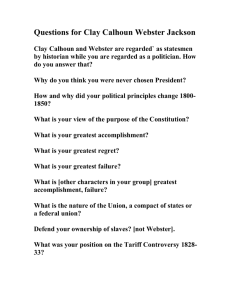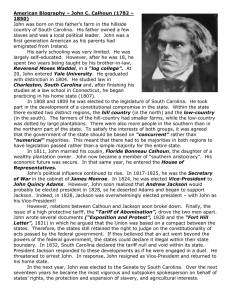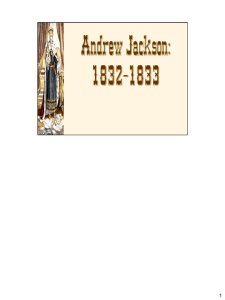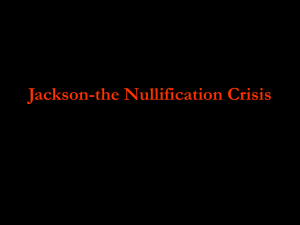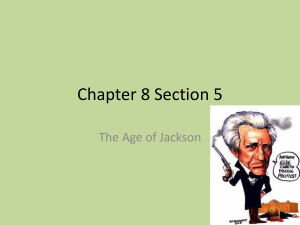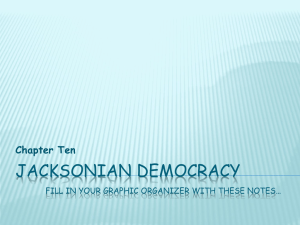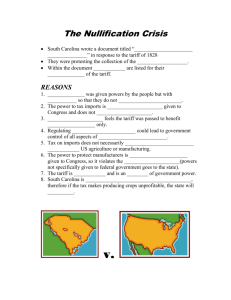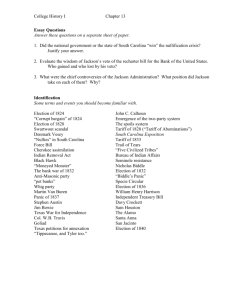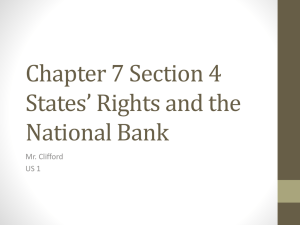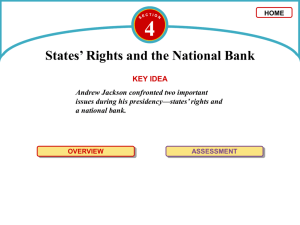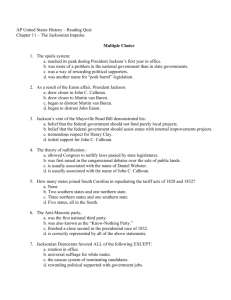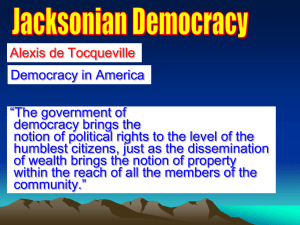States' Rights and the National Bank
advertisement
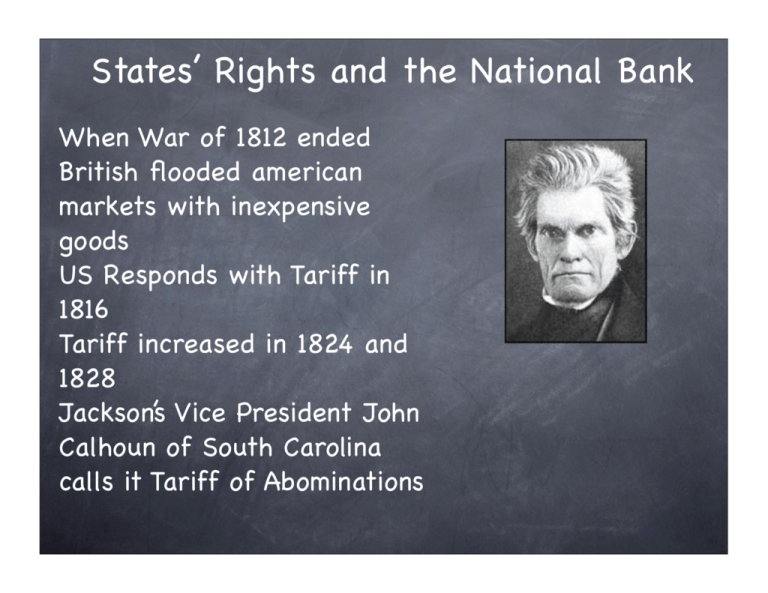
States’ Rights and the National Bank When War of 1812 ended British flooded american markets with inexpensive goods US Responds with Tariff in 1816 Tariff increased in 1824 and 1828 Jackson’s Vice President John Calhoun of South Carolina calls it Tariff of Abominations States’ Rights and the National Bank Why South did not manufacture finished products South had to buy expensive American made products South felt North was getting rich at expense of South Calhoun had been a supporter of tariff, and nationalism but... Situation of South Carolina has him change views States’ Rights and the National Bank Calhoun’s theory of Nullification The South Carolina Exposition Constitution was an agreement among Sovereign states States have the right to nullify or reject Federal Laws if it considered it Unconstitutional If state was given the right State could withdraw from the Union States’ Rights and the National Bank 1830 Haynes Webster Debate Haynes from South Carolina argues against tariff Webster for it Submission or Revolution Jackson “Our Liberty must be preserved” Calhoun “Union can only be preserved by respecting states rights Calhoun resigns as Vice President States’ Rights and the National Bank Tariff passed in 1832 unacceptable to South Carolina South Carolina declare unconstitutional and null and void Would secede if Custom officials tried to collect Jackson Furious Threatens to send in troops Force Bill of 1833 gives authorization States’ Rights and the National Bank Henry Clay The Great Compromiser suggests compromise Ten year tariff that reduces over time Crisis averted Will remerge as cause of Civil War States’ Rights and the National Bank 2nd Banks of the United States Charter to expire in 1836 Clay and Webster call for early renewal to make Campaign issue Jackson successfully paints bank as bank for privileged Bank had unfair advantage because of large deposits Stockholders reaped dividends Bank gave low rate loans to Congressmen States’ Rights and the National Bank 1832 Jackson appointed US Treasurer diverts Federal funds to “Pet Banks” loyal to Democrats BUS retaliates by calling in loans and not offering new loans Businessmen fore bank to alter policy Jackson vetoes new Charter Charter expires, becomes regular bank, goes out of business States’ Rights and the National Bank Actions of Jackson form enemies Clay, JQ Adams, Webster for Whig party Backed American System and Banking system, currency 1836 Election won by Martin Van Buren States’ Rights and the National Bank Pet Banks print too much money Notes became worthless Jackson orders gold and silver the only specie Banks stop accepting paper currency Credit collapses, economy collapses Panic of 1837 States’ Rights and the National Bank 1840 Election Van Buren v. Harrison Harrison Common man Harrison, Whig Party wins Die in first month of office John Tyler becomes President add been added to pick up southern votes
